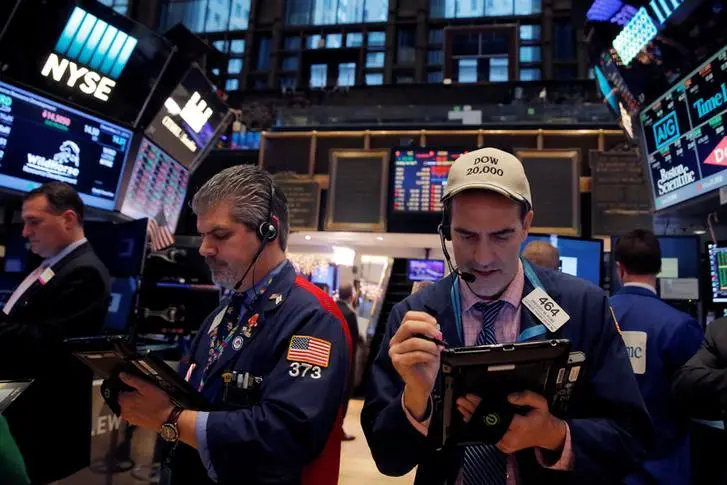PHOTO
LONDON- World stock markets got their foot back on the gas on Thursday as hopes grew that Washington could resolve its debt-ceiling squabbles and a global drop in energy prices tempered deepening fears of "stagflation".
Europe's bourses rallied off 2-1/2-month lows and Wall Street futures were pointing up .N as easing oil and gas prices offered relief after a shock 4% drop in German industrial production, which highlighted the toxic "stagflation" risk of runaway inflation and moribund growth.
The pan-European STOXX 600 index rose 1.25% in broad-based buying to reverse weekly losses, with miners, utilities and carmakers all driving higher.
Bond market borrowing costs also calmed after a sharp spike a day earlier that had taken the region's benchmark government yields to their highest point since June.
"We believe the recent pullback (in world stocks) is an opportunity to buy the dip in cyclical assets – which would include all equities (EM and DM)," analysts at JPMorgan said, although U.S. tech stocks remain ultra-expensive.
"We do not believe that the current price of energy will have a significant negative impact on the economy... Even with oil at $130 or $150 equity markets and the economy could function well," pointing to 2010-15 when oil averaged more than $100 a barrel and markets did just fine.
Oil was down nearly 1.5% and gas prices dropped almost 4%, helping European gas futures fall back from record highs.
Gas prices are up more than fivefold since the start of the year, and the huge increase over recent weeks has attracted attention from policymakers across the world.
EU Energy Commissioner, Kadri Simson, said on Wednesday that the price shock was "hurting our citizens, in particular the most vulnerable households" and that "There is no question that we need to take policy measures".
Britain’s National Grid said the UK faced tight electricity supplies this winter while local media reported that Spain's Energy Minister had summoned the top executives of its three main electricity firms.
BACK TO THE FUTURES
U.S. futures also bounced, with S&P 500 futures rising 0.9% after wild swings on Wednesday fuelled by hopes that congressional Democrats and Republicans could reach a deal to avert a government debt default.
Top U.S. Senate Republican Mitch McConnell said his party would support an extension of the federal debt ceiling into December.
"This means President Biden and Congressional Democrats would be able to finish their fiscal spending package – now estimated at around $1.9-2.2 trillion," said Deutsche Bank strategist Jim Reid.
MSCI's broadest index of Asia-Pacific shares outside Japan closed up 1.8% overnight, its biggest one-day rise since August.
Hong Kong .HSI led Asia's gains with a 3% bounce off a year low. South Korea's Kospi .KS11 gained 1.8% and Japan's Nikkei firmed 0.5% to snap eight days of losses.
There was still heavy bleeding in the Chinese property sector debt markets however, with those of Kaisa Group - China's first ever property firm default back in 2015 - slumping as much as 8.2% and some of Greenland Holdings, which has built some of the world's tallest residential towers, dropping to half their face value.
Global markets will next focus on U.S. payrolls data due on Friday, with investors anticipating that a reasonable figure will mean the Federal Reserve will decide at its November meeting to begin tapering its massive stimulus programme.
The dollar was steady, not too far from 12-month highs hit last month against a basket of currencies =USD and holding at a 14-month high against the euro.
The yield on benchmark 10-year U.S. Treasury notes was at 1.53%, off Wednesday's 3-1/2-month high of 1.57%. German Bunds hovered at a still negative -0.19% showing little reaction to European Central Bank meeting minutes that revealed it had debated a bigger cut in its asset purchases last month.
"The argument was made that markets were already expecting an end to net asset purchases under the PEPP by March 2022," the accounts showed. "The point was made that, even without the PEPP, the overall monetary policy stance remained highly accommodative."
(Additional reporting by Alun John in Hong Kong; Editing by Hugh Lawson and Chizu Nomiyama) ((marc.jones@thomsonreuters.com; +44 (0)20 7513 4042; Reuters Messaging: marc.jones.thomsonreuters.com@reuters.net Twitter @marcjonesrtrs))





















